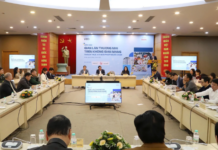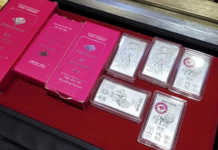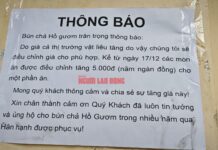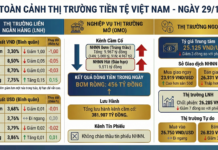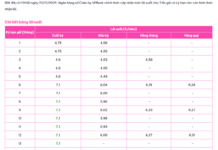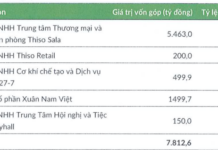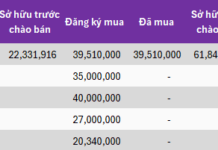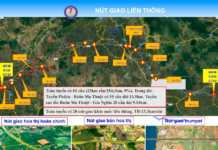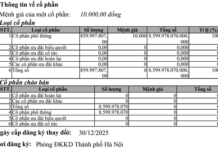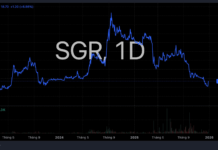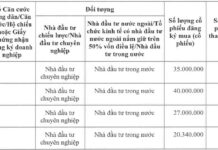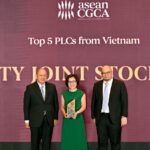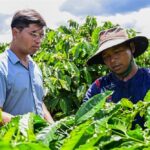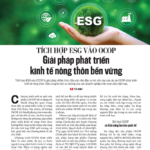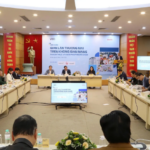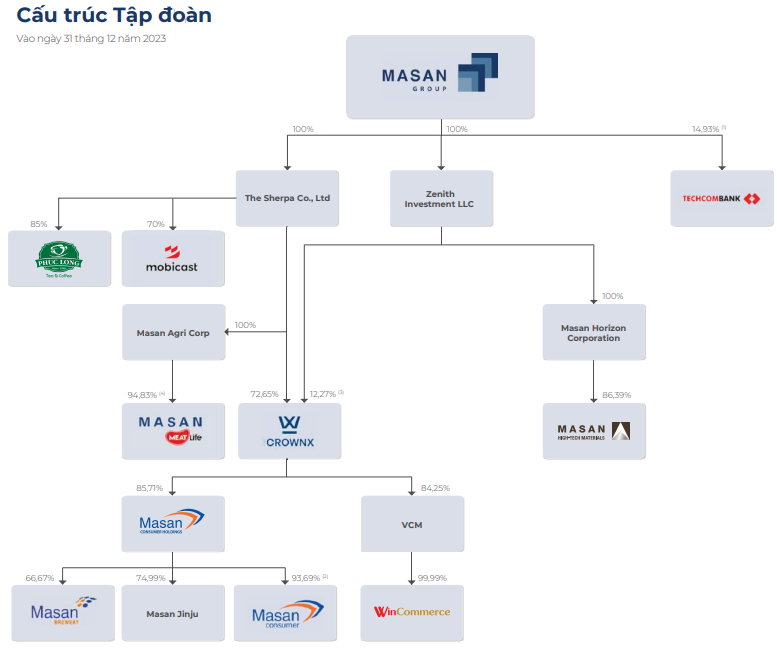In Thanh Hoa, businesses have been actively embracing clean production technologies and resource efficiency, striving towards long-term sustainable development.
GREEN PIONEER ENTERPRISES
Lam Son Sugar Joint Stock Company (Lasuco) is one of the frontrunners in the green transition journey. According to Mr. Le Van Quang, Deputy General Director of Lasuco, the company strictly adheres to the principle: “The output of one process is thoroughly utilized as input for another process.” This principle helps Lasuco minimize waste disposal while reducing processing costs and negative environmental impacts.
From 1999 to the present, Lasuco has invested hundreds of billions of dongs in installing and upgrading boilers and turbines to burn bagasse and utilize energy in production. With a crushing capacity of 7,500 tons of cane per day, in addition to utilizing all the bagasse, the company also supplements biomass fuel from acacia bark, producing about 81,000 tons of briquettes annually.
This has contributed to a steady increase in power generation over the years: 27 million kWh in 2023, 49.3 million kWh in 2024, and an expected increase to 62 million kWh in 2025. Of the total electricity generated, about 42% of the surplus is sold to EVN, with the remainder used for production operations.
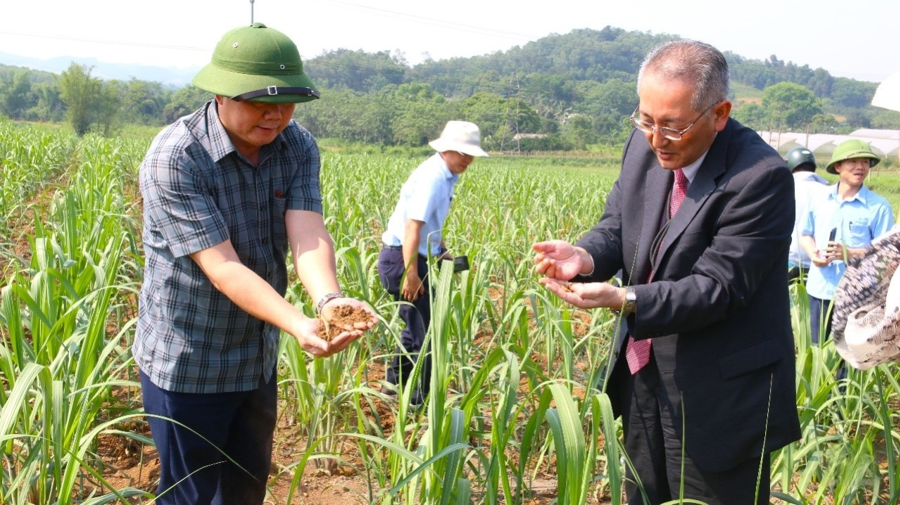
Beyond energy production, Lasuco is also one of the few businesses in Thanh Hoa that has sold carbon credits. Specifically, from 2013 to the end of 2020, the company sold nearly 200,000 CER (tons of carbon) to the Thai organization, NEPCO.
More recently, in December 2024, Lasuco signed a contract with two Japanese partners, Idemitsu Kosan and Sagri, to implement a carbon emission reduction project in the Lam Son cane area. In 2025, the project will be piloted on 500 hectares and is expected to expand to 8,000 hectares by 2027.
This is considered a significant step in the effort to develop the sugar industry in Thanh Hoa towards environmental friendliness. The project is in the process of being registered for certification under the VM0042 standard of the Verra organization. This is a prerequisite for Lasuco to participate in the international carbon credit market, thereby opening up opportunities for sustainable development, increasing revenue, and benefiting both the company and sugarcane farmers.
GREENING THE GARMENT INDUSTRY, ENHANCING EXPORT VALUE
It’s not just the agricultural sector that is going green; industrial enterprises in the province are also accelerating their green transition, especially in the garment industry, which accounts for a large proportion of Thanh Hoa’s exports.
According to statistics, in the first seven months of 2025, the province’s total export turnover is estimated at 4.1 billion USD, an increase of 21.8% compared to the same period last year. This achievement is significantly contributed to by garment enterprises that have successfully gone green to maintain their export orders.
One such example is Delta Sports Equipment Joint Stock Company in Hoang Hoa district, a company specializing in the production of sports balls and garment exports, with markets in 32 countries, including South Korea, the US, Japan, France, Denmark, and Brazil…
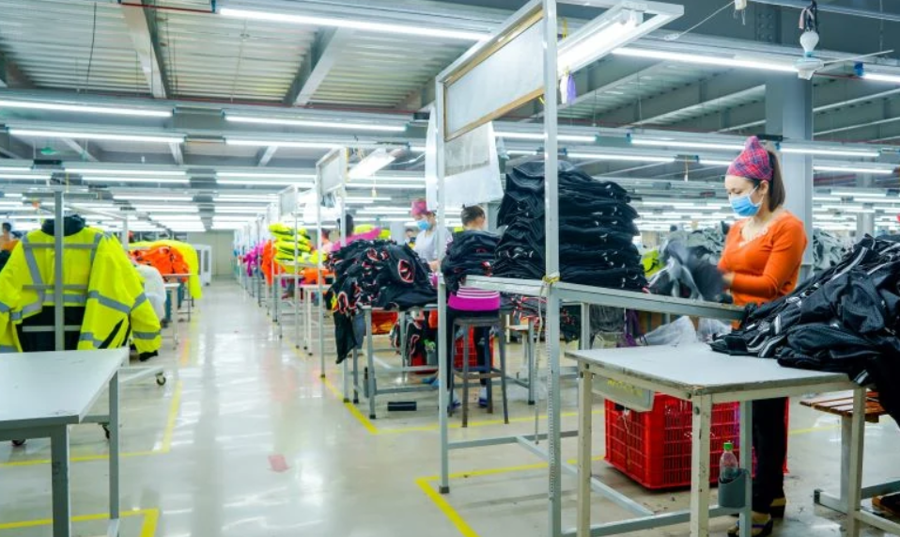
Mr. Le Ngoc Giap, Head of Organization and Administration of Delta Sports Equipment Joint Stock Company, shared that the company always considers product quality as the “golden key” to sustainable development. In addition to investing in modern equipment from Japan, Delta’s product lines are continuously improved to adapt to the domestic climate while meeting international standards, particularly FIFA standards for sports balls.
With a green orientation, Delta gradually integrates environmental factors into its production process. The company currently uses environmentally friendly cotton fabric supplied by the Nam Dinh Textile and Garment Corporation. Notably, the company’s boiler burning process has shifted to using 100% compressed sawdust pellets instead of electricity, saving costs and ensuring low emissions.
Currently, there are more than 300 garment enterprises operating in the province. According to the Thanh Hoa Textile and Garment Association, the green transition is gaining strong momentum, evident in enterprises investing in new technologies, building smart factories, and adjusting production processes to meet the sustainability requirements of international brands. As a result, in the first seven months of 2025, garment enterprises in Thanh Hoa exported 55.1 million products, an increase of 20.3% over the same period.
SPREADING THE GREEN TRANSITION ACROSS THE BUSINESS COMMUNITY
In addition to Lasuco and Delta, many other enterprises in Thanh Hoa province are proactively engaging in the green transition journey.
Notable examples include Thong Nhat Dairy Farm (Thong Nhat Dairy Cow Joint Stock Company); Tien Nong Crop Nutrition Factory (under Tien Nong Thanh Hoa Agriculture and Industry Joint Stock Company in Bim Son)… These enterprises actively apply circular agriculture models, utilize renewable energy, and efficiently manage waste.
To support the business community in their green transition journey, local departments, associations, and business associations have closely collaborated with domestic and foreign organizations to hold specialized workshops such as “Green Transition – A Driving Force for Sustainable Development in North Central Region” and “Green Economy Forum – For a Sustainable Nation.”
VPBank Goes Global with Prestigious Corporate Governance Award
As one of the top 5 Vietnamese businesses with the highest ACGS scores in 2024, VPBank was honored at the ASEAN Corporate Governance Summit and Awards. This recognition serves as a testament to VPBank’s relentless efforts in adopting international best practices in corporate governance and underscores the bank’s significant strides towards its regional and global aspirations.
The New 117 Million Ton Resource Trove: A Massive Windfall Awaits if Exports Take Off
The agricultural sector emits nearly 117 million tons of CO2 equivalent. This presents an opportunity to tap into a new resource reservoir by adopting farming practices that reduce emissions. By embracing sustainable methods, not only can we mitigate our environmental footprint, but we can also explore the potential of carbon credit exports, given the high demand for this commodity.
The Circular Economy: Unlocking New Opportunities for Retail
The concepts of sustainable development, green growth, and circular economics are presenting the retail industry with vast opportunities.

